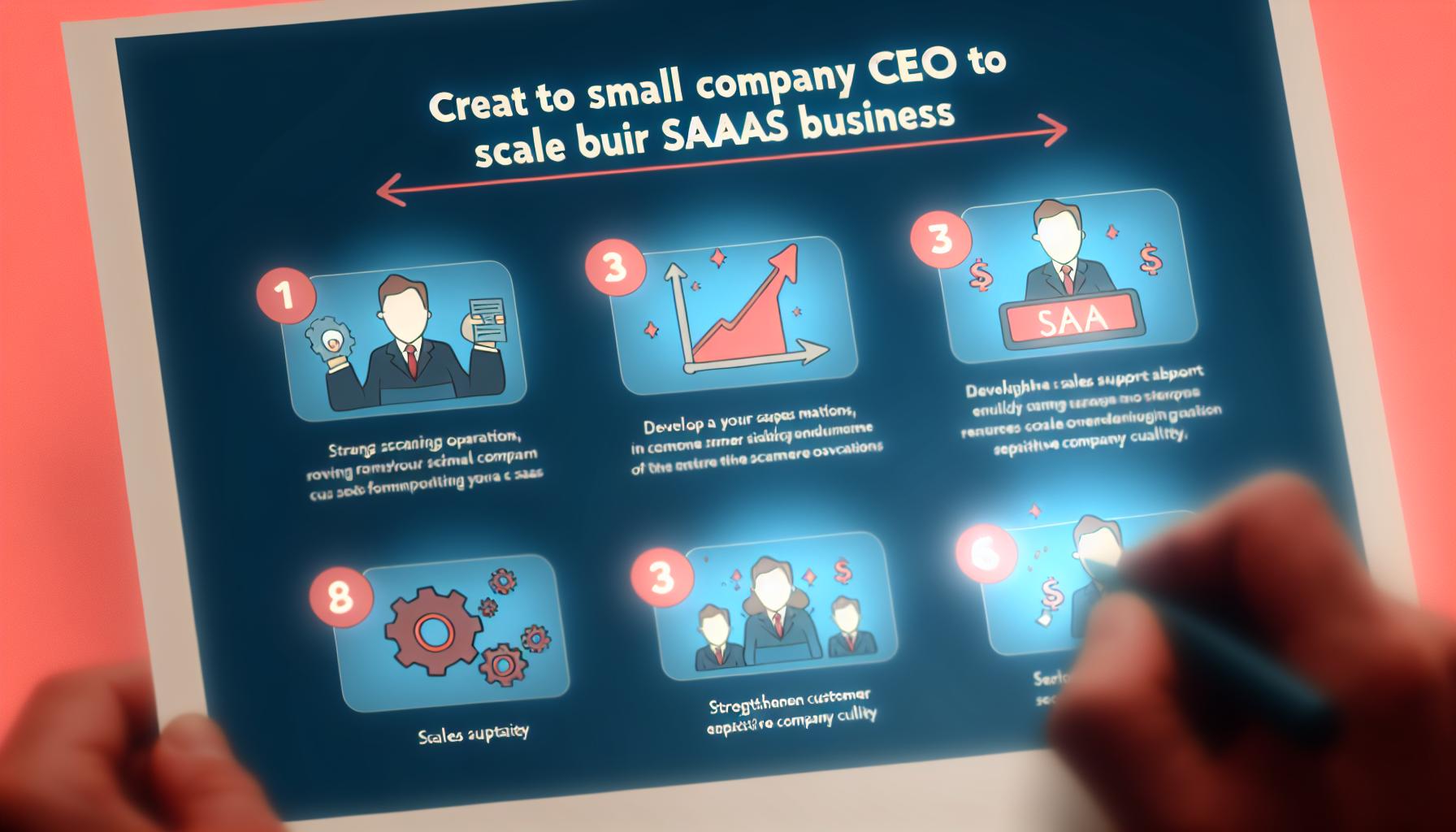Top 10 Strategies for Scaling SaaS Growth in 2024
In the fast-paced world of SaaS, businesses are constantly striving to scale their operations and drive growth. With the rise of software as a...
2 min read
Brian Polackoff
:
Jan 19, 2024 10:27:00 AM

In the fast-paced world of Software as a Service (SaaS), growth is not just a goal—it's an imperative. Yet, scaling your business presents a unique set of challenges, especially for small company CEOs who are keen on maintaining the quality of their operations, sales, and customer support. How do you ensure that your business scales effectively without compromising on the aspects that set you apart in the first place? Let's dive into a step-by-step guide designed to help you navigate this exciting journey.
Before embarking on scaling your SaaS business, it's crucial to have a strong foundation. This includes having a clear value proposition, a solid product-market fit, and a sustainable business model. Once these are firmly in place, you're ready to start scaling.
Efficiency is the name of the game when it comes to scaling operations. Here are a few strategies to consider:
- Automate Where Possible: Identify repetitive tasks within your operations and explore automation tools. This could range from billing processes to customer onboarding.
- Outsource Non-Core Activities: Focus on your core competencies and consider outsourcing other tasks, such as HR, accounting, or even some aspects of development.
- Optimize for Agility: Implement agile methodologies not just in development but across your operations to improve responsiveness and flexibility.
Scaling sales in a SaaS model requires a blend of strategic planning and execution. Here's how to approach it:
- Refine Your Sales Process: As you scale, your initial sales process might need adjustments. Continuously refine your approach based on data and feedback.
- Expand Your Sales Channels: Explore new sales channels that can help you reach a wider audience. This might include partnerships, reseller programs, or expanding into new geographical markets.
- Leverage Customer Success: Happy customers are your best salespeople. Implement a robust customer success program to encourage upsells, cross-sells, and referrals.
Quality customer support is critical for retention and word-of-mouth growth. Here's how to scale it without losing the personal touch:
- Implement Self-Service Options: FAQs, knowledge bases, and community forums can help customers find answers quickly while reducing the load on your support team.
- Use Support Automation Tools: Chatbots and automated ticketing systems can ensure that customer inquiries are handled efficiently.
- Train and Expand Your Team: Invest in training for your support team to handle a broader range of issues. As you grow, you'll also need to expand your team to maintain response times and service quality.
As you scale, keeping an eye on service quality is paramount. Here are a few pointers:
- Monitor Key Performance Indicators (KPIs): Regularly review KPIs relevant to service quality, such as response times, customer satisfaction scores, and issue resolution times.
- Solicit Feedback: Regularly ask for customer feedback to understand where you can improve. This can be done through surveys, customer interviews, or feedback sessions.
- Invest in Continuous Improvement: Use the feedback and data you gather to make continuous improvements in your product, processes, and customer interactions.
Finally, as you scale, it's vital to maintain a company culture that supports growth, innovation, and customer-centricity. Here's how:
- Communicate Your Vision: Regularly communicate your vision and goals to your team to ensure everyone is aligned and motivated.
- Promote Ownership and Accountability: Encourage a culture where team members take ownership of their work and are accountable for their results.
- Invest in Your Team: Provide opportunities for professional development and growth. A skilled and motivated team is essential for scaling successfully.
Scaling your SaaS business is an exciting journey that requires careful planning, execution, and a relentless focus on quality. By streamlining operations, amplifying your sales strategy, elevating customer support, maintaining service quality, and fostering a scalable company culture, you can grow your business without compromising on what makes it special. Remember, the key to successful scaling is not just in growing your customer base but in ensuring that every aspect of your business grows with it.

In the fast-paced world of SaaS, businesses are constantly striving to scale their operations and drive growth. With the rise of software as a...

2 min read
For founders in the Software as a Service (SaaS) sector, understanding the essence of client retention is paramount to long-term success. While...

The B2B SaaS industry continues to evolve at a rapid pace, necessitating innovative strategies to overcome the myriad of challenges inherent to...